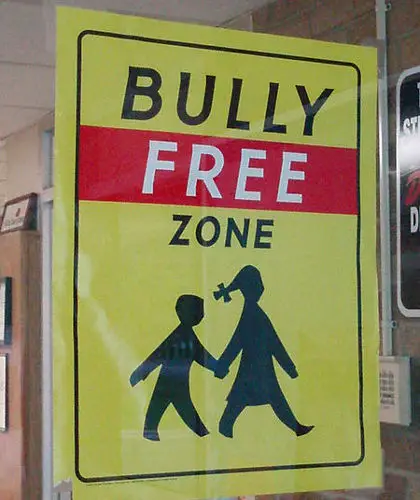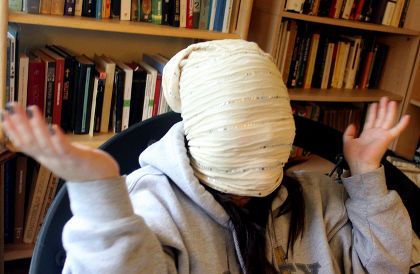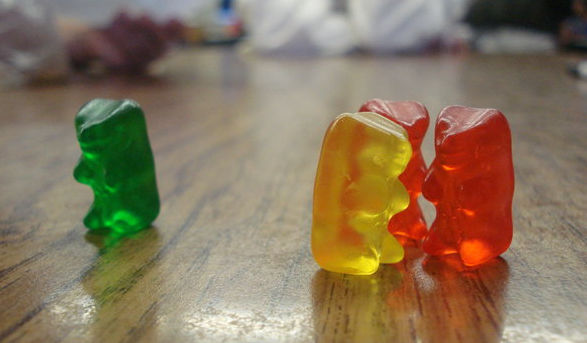Jonathan Dodd‘s latest column. Guest opinion articles do not necessarily reflect the views of the publication. Ed
I think I was an odd child. That seems likely to me, because I’ve often been described as an odd adult. Some people would be insulted by that, but I find it somehow comforting. Some people measure themselves by the things they have in common with others, and others care more about their individuality. I guess I’m one of those.
As in everything else, nobody can be all one thing or the other, because we’re all a mixture of conformist and rebel. Some of us seek the majority and others want to go their own way. That’s how we are individually and as a species.
When the pack mentality rises
When you’re growing up you feel this most keenly. Wherever you are, there are things that it’s easy or difficult to be and your status will be dictated arbitrarily by skills or advantages you may or may not have. You can compensate for some, like intense football practice, but others, like being gay, can be far more difficult to deal with. But the natural sportsperson or the good-looking will always be popular.

I was neither, and my parents weren’t rich, so I had to think about where I was supposed to fit in, or even whether I wanted to. I’m still trying to work that out. Of course, there are some things that it’s actually dangerous to be or admit to when you’re young, and an awful lot of us have had to internalise things because of fear of persecution. Usually these things are entirely benign in themselves but, when the pack mentality rises you’re more likely to survive if you’re not singled out as prey.
The sad thing about bullies
I was born with, or developed, an intense desire to think things through and then stand up for what I believe in. I detest bullying and always resist it when it raises its ugly head. Surprisingly, only about four years ago someone at work decided that it was very important to bully me, and it took a lot of effort to persuade him that it wasn’t going to happen.

The sad thing about bullies is that they were usually bullied themselves when they were young, or were terrified of being bullied. I know this intellectually, but I never understood how someone could take that course. Because we’re human, we have the capacity to think, and we’re supposed to understand the benefits of living together. It’s a no-brainer as far as I’m concerned.
Because I couldn’t write villains
As you’ll gather from the above paragraph, I have difficulty understanding the actions and attitudes of so many of the participants in the current Syrian trouble (and others), which is for me the obvious and ultimate result of unchecked bullying. What on earth do they think they’re doing? How does anyone gain from any of it? How can any of them sleep at night?

I know. I’m naive. I obviously have something missing, because I do know that people do these things, and many worse things besides, and I can see intellectually the trail that leads to these kinds of bad behaviours, but I just can’t understand why anyone would actually go down that road. Somebody once told me I would never be a good writer because I couldn’t write villains. Everybody in my stories, she said, was essentially good, and people like to read about violence and nastiness and dark and dangerous characters.
She was half-right, because I don’t write bad characters. But I don’t agree with her assumption that her preference for stories about murder and mayhem was universal. I’ve never wanted to write anything like that, but I’m thinking about it now and wondering if I could. That’s me, thinking again.
Clouds of verbiage
I have no difficulty imagining a world where government and law and real morality come into line, and the principles of human rights are implemented. We’re tentatively moving in that direction with such grand things as international war crime commissions and courts, but we’re a long way from it yet. We need a cultural change that sees bullying as behaviour to be corrected whenever it raises its ugly head.

At the heart of every cloud of verbiage is always a very simple idea. The cloud of verbiage is almost always built up by people who want to obscure the very simple idea in order to let themselves or someone else continue to behave badly. Accepting the cloud of verbiage rather than the very simple idea is usually a way to justify not taking action when action should be taken.
Great and original ideas
One of my disappointments with churches, political parties and governments, the organisations that grow up around great and original ideas, is that they always end up in the business of watering down the basic tenets that should be at the heart of everything they do, for bad reasons. And they surround themselves in verbiage that appears to justify the things they do which they know are wrong and which go against the very principles they’re supposed to be upholding. And then they complain about their support melting away.

I know that the price of liberty is eternal vigilance. There is no manual on when to make a stand or when to give up and run. The most common reaction for most people is the third way – if you can’t beat them, join them. In many ways that’s often the worst of the three.
It reminds me of an old prayer I like.
God, grant me the serenity to accept the things I cannot change,
The courage to change the things I can,
And wisdom to know the difference.
I’m still trying to work that out too
If you have been, thank you for reading this.
Image: cajunsunshine92 under CC BY 3.0
Image: Eddie S under CC BY 2.0
Image: Michiel2005 under CC BY 2.0
Image: themastershakesignal under CC BY 2.0
Image: Preater under CC BY 2.0
Image: Quinnanya under CC BY 2.0





